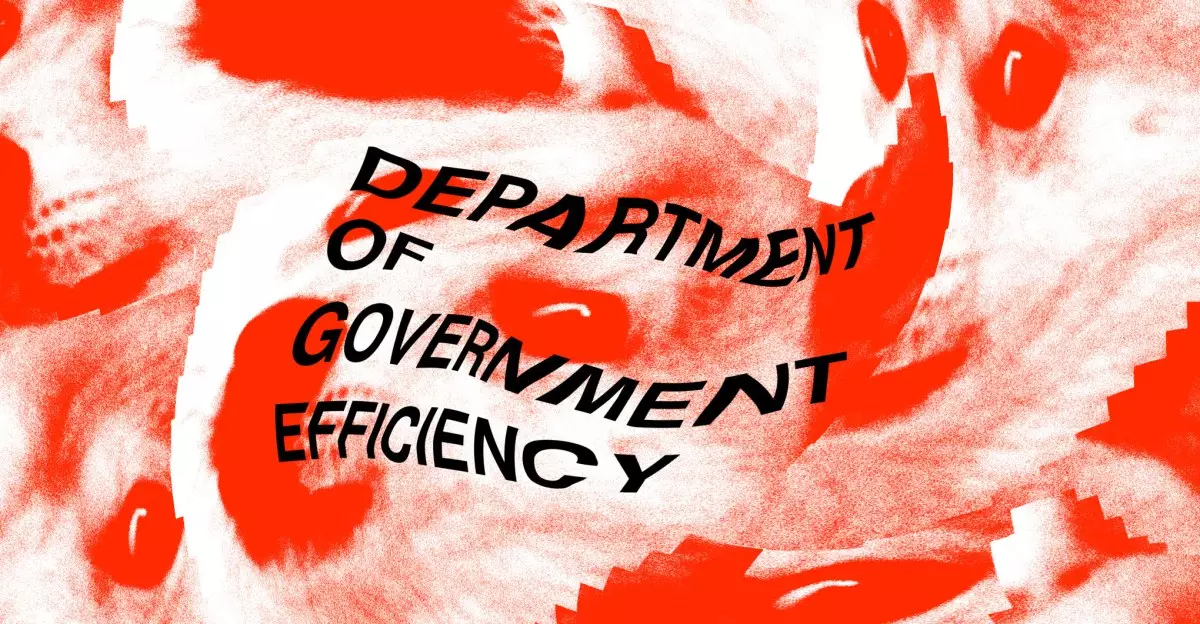In a bold and somewhat controversial move, Elon Musk’s recently established Department of Government Efficiency (DOGE) is gearing up for a hackathon aimed at the creation of a ‘mega API’. This single gateway is intended to unlock access to Internal Revenue Service (IRS) data for third-party software applications. Detailed in reports by Wired, the core aim of this initiative is to facilitate the integration of IRS data into a cloud-based platform, serving as a centralized “read center” for the agency’s extensive information systems. While this ambitious project raises eyebrows, it also ignites a debate about transparency and governmental efficiency.
The Talent Behind the Project
At the heart of the hackathon are two individuals purportedly at the helm: Gavin Kliger, a 25-year-old project leader, and Sam Corcos, a health-tech entrepreneur. Their youth and lack of experience in governmental operations prompt concern among experts and insiders, many of whom believe that orchestrating such an extensive data system within a mere 30-day timeframe is not only impractical but potentially disastrous for the already-strained IRS infrastructure. This raises fundamental questions about the suitability of individuals with limited governmental experience to guide a project of this magnitude and complexity, especially when it involves sensitive taxpayer data.
The Third-Party Debate
Among the potential third-party providers discussed in the context of this mega API is Palantir, a company that has garnered a reputation for its controversial role in surveillance and data analytics for governmental bodies. This connection has led to heightened scrutiny and skepticism from various quarters about the implications of privatizing access to such extensive IRS data. Critics argue that this could pave the way for misuse or manipulation of sensitive information, undermining the purpose of creating a more efficient government.
Legislative Resistance
Despite the ambitious goals set by DOGE, legislative pushback is palpable. Senator Ron Wyden and other lawmakers recently expressed their firm opposition to allowing DOGE unfettered access to IRS systems, emphasizing the importance of protecting taxpayer privacy. They commended the IRS’s decision to refuse requests that could compromise its operational integrity. This resistance underscores a significant tension between innovation and accountability, giving rise to questions about the balance between streamlining government processes and preserving essential checks on data usage.
Expert Concerns
Several sources affiliated with the IRS have articulated a sense of alarm regarding DOGE’s agenda. They warn that comprehensively understanding and systematizing the IRS’s complex data collections would require years of careful analysis, not a hastily convened hackathon. This suggests that a lack of thorough understanding of IRS tax codes and data structures could lead to missteps that have long-lasting repercussions. Failure in this project, whether through technical inadequacies or security oversights, could have catastrophic effects on public trust in governmental institutions.
The initiative led by DOGE serves as an intriguing case study in the intersection of technology, government, and data privacy. It challenges us to ponder the future of data accessibility within public institutions while raising vital questions about who should wield power over taxpayer information. In pursuit of innovation and efficiency, the government must tread carefully, weighing the benefits of technological progress against the potential risks involved in altering the landscape of data accessibility.

